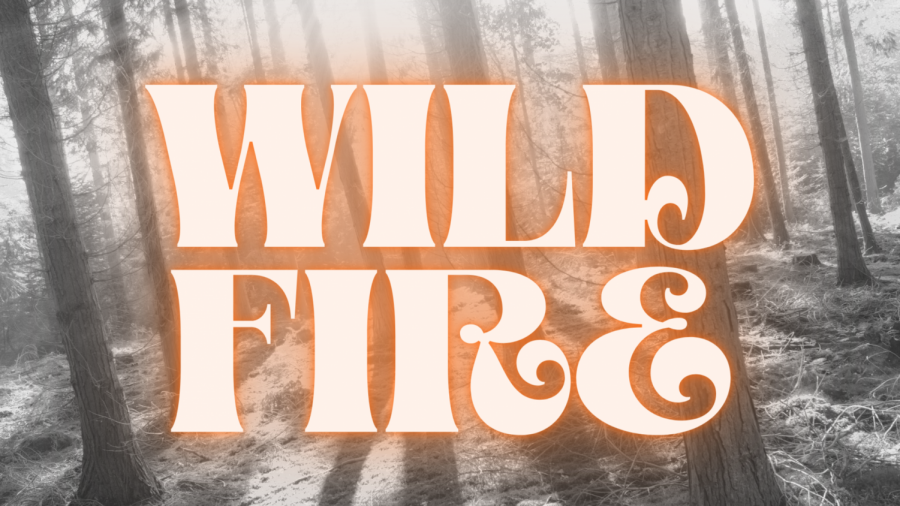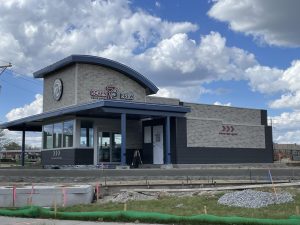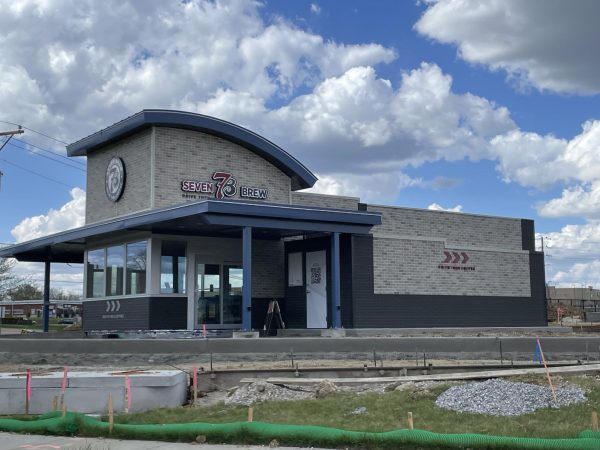Record Heats Fuel Raging Wildfires
As climate conditions worsen, wildfires rage across the west coast
As climate conditions worsen, wildfire threats loom.
October 5, 2021
As autumn returns to the US, fires across the country continue to blaze. On Aug. 12, a wildfire which now spreads 25,000 acres sparked in Oregon and has yet to be contained. On Sep. 26, The South Coast Air Quality Management District issued an air quality advisory in response to wildfires within the state of California as the skies turned to an ashy gray. On Sep. 27, the Colorado town of Silverthorne received an evacuation notice for its at-risk homeowners. As the country moves into fall, certain states are left to respond to the interspersed sparks left behind by the peak of the wildfire season in the month of August. However, as the Department of Agriculture has claimed, the concept of wildfire season may be retired in favor of wildfire years as seasons continue to lengthen.
As we draw closer to winter, forest staff still remain vigilant in such states as Arizona, California, Colorado, and even Tennessee, as wildfires are common in different regions of the nation. Why does the ‘fire season’ now extend to winter? As environmental conditions continue to reach new records, from scorching temperatures to longer droughts, conditions for powerful wildfires rise to new peaks. The western regions of the United States specifically have shattered heat records as they sizzled through the summer and rolled into September.
Wildfires have been an increasing worry for years, from the Australian bushfires of 2019 and the devastating 2018 fires of the west coast to the 2020 and 2021 gender reveal disasters in California.
Nearly 90% of wildfires are human-caused. — US Department of Agriculture
The hot-button topic of wildfires has sparked serious debate on who to blame. The Department of Agriculture has stated that “nearly 90% of wildfires are human-caused” and it is no doubt that the record-breaking changes in climate have made these disasters all the easier to unintentionally cause.
Hotter temperatures and drying climates have also affected our neighboring nations, in western Canada and nearly all of Mexico, as the Center for Disaster Philanthropy reported. Not only are fires harder to prevent, they are also harder to control. As of Sep. 27, evacuations are still a routine measure for Californians and Coloradoans in certain risky areas.
As of Sep. 27, the National Interagency Fire Center noted that nearly 3.3 million acres of land burned across the nation in a situation report. This has caused vast problems of destroyed forests and droughts, meaning that animals have suffered the loss of their homes and means of survival. This was a rough lesson that was brought about by the infamous Australian wildfires. As the nonprofit ScienceNews.org reports, “49 vertebrates that previously were not endangered now qualify for being listed as threatened under Australia’s guidelines for that designation.” This threat looms in the United States as fires continue to ravage sensitive areas. The National Wildlife Federation warns that populations of salmon, pygmy rabbits, Northern spotted owls and certain species of grouse are facing ever-lowering populations as a result of the damage to their habitats brought on annually by worsening wildfires.
As conditions in US forests continue to support longer and more devastating wildfires, the nation will have to face new challenges as the blazes deplete its natural resources. The US Department of the Interior stresses that humans must act responsibly and vigilantly to prevent the disaster from occurring. As previously mentioned, nearly 90% of these disasters are caused by human activity, so the need for responsibility and care remains the top option for prevention.
While wildfire activity in Missouri is significantly less than that of the west coast, we must all remain informed of the devastating ecological impacts they have on the country and take on personal responsibility to keep the land and our homes safe. Whenever we ponder on the best idea on how to make sure these disasters don’t occur, we must remember the words of one Smokey the Bear: only you can prevent forest fires.


























